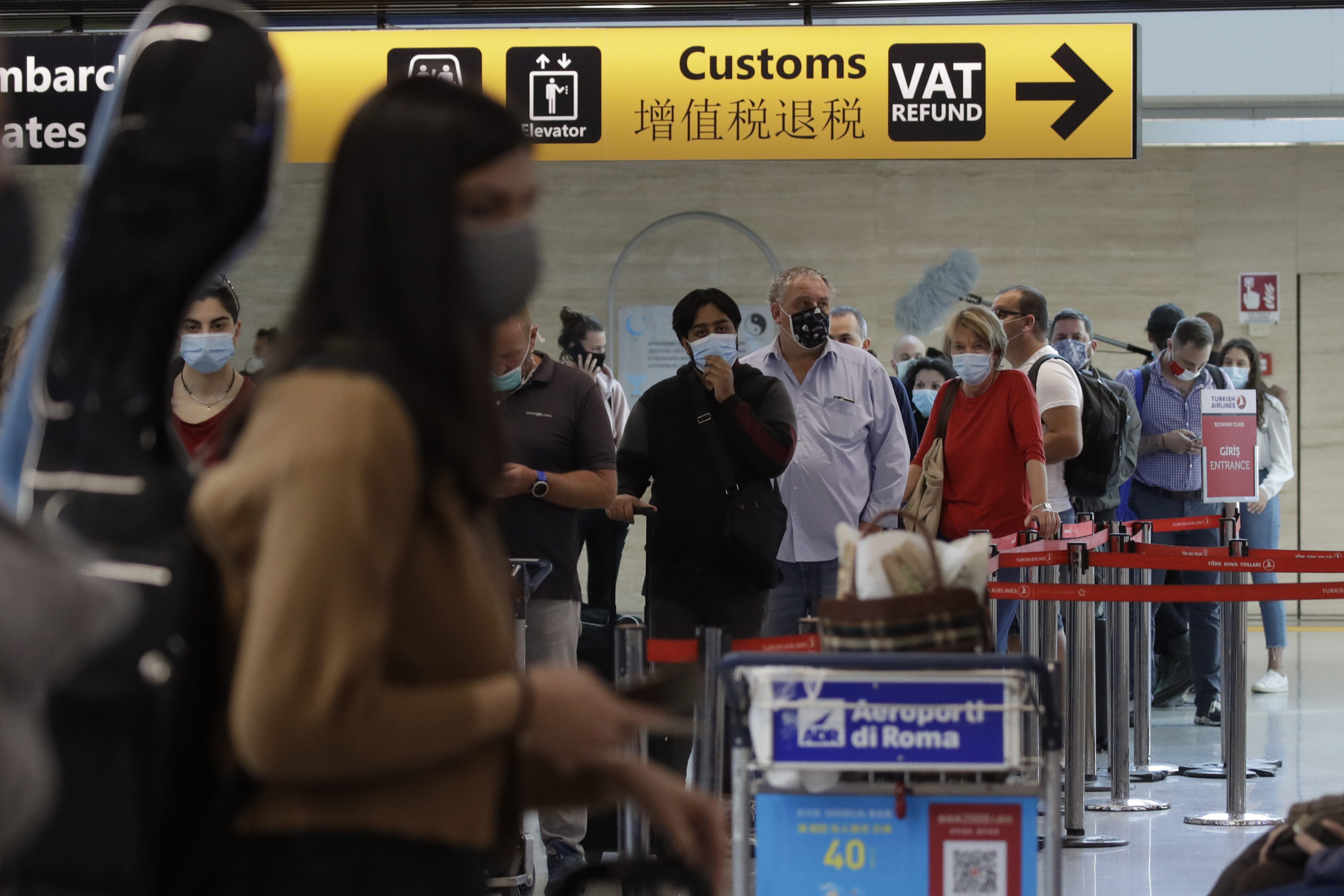
People wait in line at the check in for a flight to Dusseldorf, Germany, at Rome’s Fiumicino airport, Wednesday, June 3, 2020. (AP Photo/Alessandra Tarantino)
BRUSSELS — The European Union on Thursday announced plans to ease a ban on nonessential travel to the continent, with foreign students, non-EU nationals who normally live in Europe and certain highly skilled workers likely to be exempt from the coronavirus restrictions from July 1.
After the virus began spreading throughout Europe in March, the EU gradually extended a ban on all nonessential travel into the 27 member countries plus Iceland, Liechtenstein, Norway and Switzerland until June 15.
With borders inside Europe’s ID check-free travel area likely to be fully functional again by the end of June, the EU’s executive arm, the European Commission, is recommending that outside borders be opened to give a much-needed boost to virus-ravaged economies and in particular the tourism sector.
“While we will all have to remain careful, the time has come to make concrete preparations for lifting restrictions with countries whose health situation is similar to the EU’s and for resuming visa operations,” EU Home Affairs Commissioner Ylva Johansson said.
While the spread of the coronavirus has eased in Europe, it remains high elsewhere and other countries still have bans in place on the entry of some European nationals, so the commission is reluctant to lift all travel restrictions.
It is urging European countries to take coordinated decisions on whom they let in and from where — given that visas for the passport-free Schengen area allow travel in 26 countries — and base their actions on data from the World Health Organization and Europe’s Centre for Disease Prevention and Control.